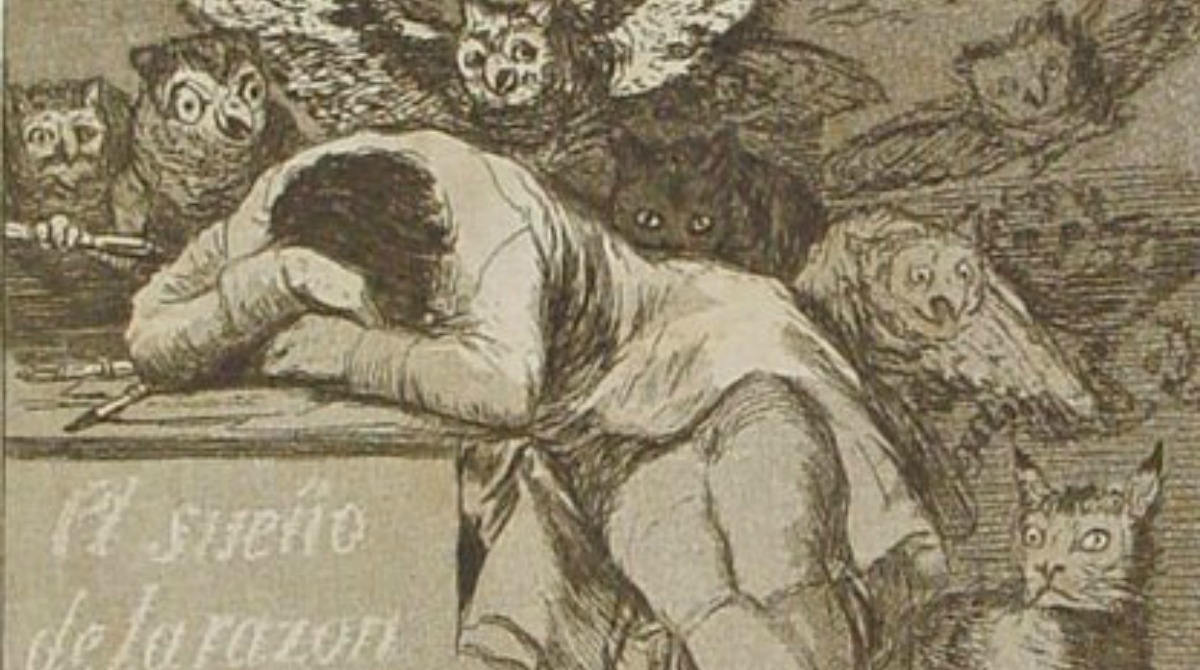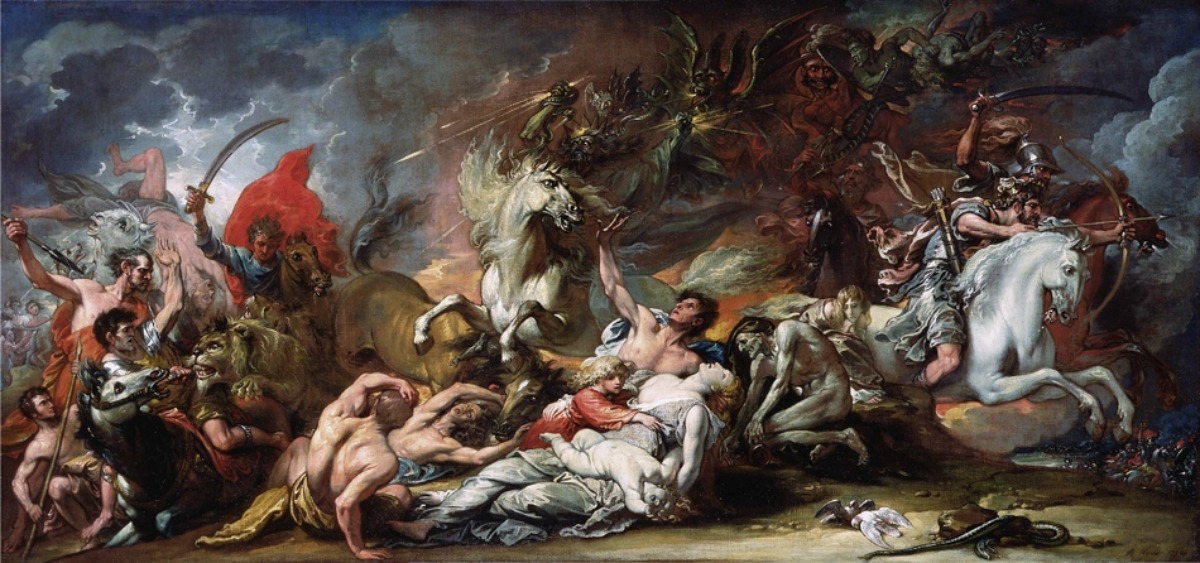The secular inquisition
A few days ago, the philosopher John Gray wrote on the Unherd website a bleak but precisely directed analysis of why the humanities can’t be saved. It used to be said, he wrote, that the humanities taught people how to think. No longer.
“Students learn an intra-academic argot – intersectionality, hetero-normativity and the like — that has zero utility in the world in which they will go on to live.They also learn that disagreement in ethics and politics is illegitimate. Anyone who departs from the prevailing progressive consensus is not just mistaken but malevolent. When enforced in universities, this is a prescription for censorship and conformism. What is being inculcated is not freedom of mind, but freedom from thought”.
Gray was echoing the despair of Sir Roger Scruton, himself a victim of vicious bullying by closed minds. Sir Roger recently observed that the intellectual corruption of the humanities had led him to conclude that those departments should be shut down altogether and the universities be reduced to institutions of scientific inquiry alone.
For many years, I have been writing about these trends and attempting to explain why western society seems to be tearing itself up by the roots. Much of the current discussion about the malign development of hate-fuelled divisions, identity politics and other aspects of our culture wars echoes the analysis in my own books: All Must Have Prizes (1996), The Sex-Change Society: Feminised Britain and the Neutered Male ( 1999) and The World Turned Upside-Down: the Global Battle over God, Truth and Power (2010).
As a result, I will be publishing on this blog a series of excerpts from these three books (the first two of which are now sadly out of print) in the hope they may further help illuminate today’s great cultural battleground.
Today I start with an excerpt from a chapter entitled “The Secular Inquisition” from The World Turned Upside-Down.
What have the issues of anthropogenic global warming, the war in Iraq, Israel and scientism got in common? Not a lot, you might think. But in fact a number of threads link them all. Most fundamentally, they all involve the promotion of beliefs that purport to be unchallengeable truths but are in fact ideologies in which evidence is manipulated, twisted and distorted to support and “prove” their governing idea. All are therefore based on false or unsupported beliefs that are presented as axiomatically true. Moreover, because each assumes itself to be proclaiming the sole and exclusive truth, it cannot permit any challenge to itself. It has to maintain at all costs the integrity of the falsehood. So all challenges have to be resisted through coercive means. Knowledge is thus forced to give way to power. Reason is replaced by bullying, intimidation and the suppression of debate.
This makes them all deeply regressive movements of thought, which corrode the most fundamental concept of the Western world. The principal characteristic of Western modernity is freedom of thought and expression and the ability to express dissent. The eighteenth-century Enlightenment ushered in the modern age by breaking the power of the church to control the terms of debate and punish heresy. Church and state were separated, and a space was created for individual freedom and the toleration of differences—the essence of a liberal society.
Cultural Totalitarianism
While it would be a mistake to idealize the eighteenth and nineteenth centuries, this era in Britain and America did provide a breathing space between the religious tyranny of the age that preceded it and the horrors that were to follow. Yet the French Revolution and the Terror unleashed by it presented the inescapable evidence that the Enlightenment, far from consigning murderous obscurantism to the dustbin of history, contained powerful strands from the start that would merely secularize tyranny. In the twentieth century, the political totalitarianism of communism and fascism, although overtly antireligious, echoed the premodern despotism of the church by declaring themselves the arbiters of a totalizing worldview in which all dissent would be crushed. Now, with both communism and fascism defeated, the West has fallen victim to a third variation on the theme of totalitarianism: not religious or political this time, but cultural. It is what J. L. Talmon identified back in 1952 as “totalitarian democracy,” which he characterized as “a dictatorship based on ideology and the enthusiasm of the masses.”
If religious totalitarianism was rule by the church and political totalitarianism was rule by the “general will,” cultural totalitarianism is rule by the subjective individual, freed from all external authority and constraints. Morality is privatized so that everyone becomes his or her own moral authority, while the laws and traditions rooted in Christianity and the Hebrew Bible have come under explicit attack. The old order of Western civilization, resting on the external authorities of religion and culture, has to be destroyed. With no order or purpose in the world, moral and cultural relativism are the rule; any attempt to prioritize any culture or lifestyle over any other is illegitimate.
The paradox—and it is acute—is that this relativist doctrine itself assumes the form of a dogmatic moralizing agenda that takes an absolutist position against all who challenge it and seeks to stamp out all deviations. Medieval Christianity—like contemporary Islamism—stamped out dissent by killing or conversion; Western liberals do it by social and professional ostracism and legal discrimination. It is a kind of secular Inquisition. And the grand inquisitors are to be found within the intelligentsia—in the universities, the media, the law, the political and professional classes—who not only have systematically undermined the foundations of Western society but are heavily engaged in attempting to suppress any challenge or protest.
It is paradoxical but not surprising that the assault on intellectual liberty is taking place within the institutions of reason. For decades, these have been dominated by a variety of wrecking ideologies such as anti-capitalism, anti-imperialism, utilitarianism, feminism, multiculturalism and environmentalism. What they all have in common is the aim of overturning the established order in the West. What was previously marginalized or forbidden has become permitted and even mandatory; what was previously the norm has become forbidden and marginalized. As the philosopher Roger Scruton has written, the curriculum in the humanities is “relativist in favour of transgression and absolutist against authority.” Because these are ideologies, they wrench facts and evidence to fit their governing idea. They are inimical to reason and independent thought—and thus to freedom, because reason and liberty are inseparable bedfellows.
As Sir Karl Popper has observed, reason grows by way of mutual criticism and through the development of institutions that safeguard the liberty to criticize and thus preserve freedom of thought. Because it treats people impartially, reason is therefore closely linked to equality. Pseudo-rationalism, by contrast, is “the immodest belief in one’s superior intellectual gifts—the claim to be initiated, to know with certainty, to possess an infallible instrument of discovery.” This pseudo-rationalism, the enemy of reason, is precisely what has the Western intelligentsia in its grip.
It is hard to overstate the influence on our culture that is wielded by the doctrines of anti-imperialism, multiculturalism, feminism, environmentalism and the like. They form the unchallengeable orthodoxy within academia, the base camp for their “long march through the institutions,” which they have colonized with stunning success. The center of political gravity has been shifted so that anyone who does not share these values is defined as extreme.
“Progressives” on the left believe that their secular, materialistic, individualistic and utilitarian values represent not a point of view but virtue itself. No decent person can therefore oppose them. In Manichean fashion, the left divides the world into two rival camps of good and evil, creating as the sole alternative to itself a demonic political camp called “the right,” to which everyone who challenges it is automatically consigned. Since “the right” is by definition evil, to dispute any left-wing shibboleth is to put oneself beyond the moral pale. There can be no dissent or argument at all. Only one worldview is to be permitted. Anyone who supports Israel or the Americans in Iraq, or is skeptical of anthropogenic global warming, or opposes multiculturalism or utilitarianism, or supports capitalism or is a believing Christian is “right-wing” and therefore evil.
A central doctrine in the progressive orthodoxy is that “discrimination” is the supreme crime. The very idea of a hierarchy of cultures, beliefs or lifestyles is deemed to be discriminatory. According to the ideology of nondiscrimination, all self-designated “victim” groups can do no wrong, while the majority culture can do no right. Morality is redefined around subjective feelings. Any objective evidence of harm that may be done by “victim” groups is swept away; all that matters is that they must not be made to feel bad about themselves, nor be put at any disadvantage even if it results from their own actions.
Activities previously marginalized or considered transgressive are now privileged, while those considered to embody normative values are actively discriminated against. In the cause of nonjudgmentalism, only those who are in favor of moral judgments based on the ethical codes of the Bible are to be judged and condemned. In the cause of antidiscrimination, only those who believe in a level playing field are to be discriminated against. In the cause of freedom, those who seek to limit anarchic behavior in order to prevent harm are to be denied the freedom to do so.
The Illiberalism of Minority “Rights”
In Britain, the antidiscrimination orthodoxy has led to a systematic campaign against Christians—particularly over the issue of homosexuality, the key area where Christians run up against social libertarianism in the public square. Freedom of conscience, the cardinal tenet of a liberal society, has been swept aside in the cause of gay rights. While true prejudice against homosexuals or anyone else is reprehensible, “prejudice” has been redefined to include the expression of normative values.
The assault on bedrock Western moral codes has punished those who embody a moral order that is now deemed to be oppressive. In Britain, the Blair/Brown Labor government systematically legislated in favor of vice while demonizing virtue. It sanctioned and incentivized irregular sexual relationships and out-of-wedlock births, while loading the financial dice against married couples. It liberalized laws and practices regulating drinking, gambling and drugs.
At the same time, it loaded the scales of justice against men, whom it implicitly characterized as intrinsically violent by reversing the age-old presumption of innocence. Thus doctors and midwives were instructed to ask all pregnant women if they were being abused by their husbands or boyfriends. The law on rape was altered to make convictions more likely on the basis that women who claim they have been raped always tell the truth, although there is clear evidence to the contrary. The government poured millions of pounds into women’s shelters on the grounds that domestic violence against women was rampant, despite overwhelming research evidence that women instigate violence against men at least as frequently as men instigate it against women.
The issue of racial prejudice routinely results in the demonization of majority culture. In 1997, the British Macpherson inquiry into the police handling of the racially motivated murder of Stephen Lawrence, a black teenager, in south London in 1993 turned into something out of Salem, with the police pressured to confess to their own racism—even though, as the report eventually made quite clear, there was not a shred of evidence of any racist statement or act by any police officer. One of the inquiry advisers, Dr. Richard Stone, required a ritual confession of sins from the police. He urged the Metropolitan Police Commissioner, “I say to you now, just say, ‘Yes, I acknowledge institutional racism in the police.’ . . . Could you do that today?” The failure by the police to declare their guilt could only reflect their lack of “understanding” of “the essential problem and its depth”: the “institutional racism” on which Stone had already reached his unalterable verdict. Chillingly, the refusal to confess their guilt therefore served to prove their guilt—just as in the Stalinist show trials of the 1930s.
The antiracism witch-hunt is even more savage in America. The classics professor Mary Lefkowitz describes in her book History Lesson what happened when she spoke out against one of her faculty colleagues at Wellesley College, Professor Anthony Martin, who had been teaching his students that Greek culture was stolen from Africa and that the Jews were responsible for the slave trade. Even though he had been teaching patently absurd myths—such as that Aristotle himself stole manuscripts from the great library at Alexandria in Egypt, which was built after his death—Lefkowitz discovered that the truth was irrelevant. All that mattered was “white racism.”
She further discovered that one of the texts being taught, The Secret Relationship between Blacks and Jews, published in 1991 by the Nation of Islam, was an anti-Jew polemic that accused Jews of instigating a “black African Holocaust” and was drawn in large measure from Henry Ford’s The International Jew: The World’s Foremost Problem. As a result of her protests, Professor Lefkowitz in turn was subjected to outpourings of anti-Jewish bigotry. Colleagues who said they didn’t care “who stole what from whom” accused her of putting Martin on trial and disrupting campus harmony. When she wrote a book, Not Out of Africa, documenting the egregious lies being taught, she was accused of attacking black Afrocentrist scholars because they were black. “During these strange days in the academy,” she wrote, “it seemed that race had become knowledge. Descartes had said ‘I think, therefore I exist.’ . . . Now the motto had become ‘I am, therefore I know.’”
The “Stupidity of Human Dignity”
Anyone who stands up for the intrinsic respect due to human life against the amoral march of bioethics is demonized for offending against the priestly caste of the dogmatic relativists who inhabit a higher plane of existence altogether. In a New Republic article titled “The Stupidity of Dignity,” the renowned American psychologist Steven Pinker spoke darkly of “a movement to impose a radical political agenda, fed by fervent religious impulses” that drew upon “quite extraordinary” Judeo-Christian ethics in order to restrict the ability of scientists to do certain forms of research, such as embryonic stem-cell research or human cloning. Outraged by such a challenge to “twenty-first-century biomedicine” from “Bible stories, Catholic doctrine and woolly rabbinical allegory,” he singled out for abuse the leader of this movement, the philosopher Leon Kass, whom he characterized as “pro-death” and “anti-freedom”—all because Kass had the temerity to champion the cause of human “dignity,” which Professor Pinker called a “squishy, subjective notion,” “slippery and ambiguous” and “a mess.” He considered the concept of “autonomy” to be far better.
One of the notable features of this attack was that the “theocon” ethics that Pinker was demonizing as an offense against the unchallengeable virtue of biomedicine were said to be overwhelmingly Catholic. Kass was accused of bringing forward phalanxes of Catholics to promote his evil agenda. Pinker made no mention of the fact that Leon Kass is a Jew.
It is hard not to conclude from remarks such as Pinker’s that just as leftists assume that all evil people are right-wing and all right-wing people are evil, so also all these evil, right-wing people are Christians and all Christians are evil and right-wing. These labels have become self-reinforcing weapons with which to smear opponents, even if they are not Christian or right-wing at all.
Extracted from The World Turned Upside-Down: the Global Battle over God, Truth and Power, by Encounter, New York, 2010




